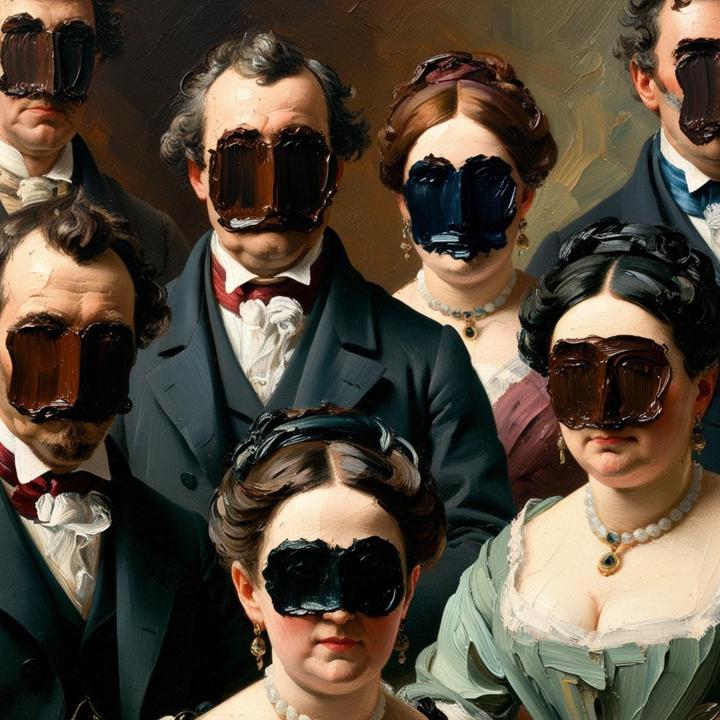
This is the third essay in a series of three on The Evolution of Romantic Poetry.
- To read Part Two: A Cross-Cultural Exploration click here.
- To read Part Three: Craft, Technique, Form, & Innovations click here.
Introduction: Romantic Poetry and the Language of Love
Even after they get hit, some people will stay.
I'm not talking about physical violence, though that matters too. I'm talking about the thousand quiet cruelties we endure in the name of love. The emotional neglect that leaves no visible bruises but hollows you out from the inside.
I spent three years being someone's emotional support animal. Available at 2 AM for their crisis but invisible during mine. Reading their poetry while they ignored mine. Showing up when summoned, disappearing when dismissed. I called it love. Looking back, I call it training; learning to accept scraps and call them a feast.
Here's what poetry taught me: we've been documenting this particular flavor of self-destruction for millennia. From Sappho burning for someone who barely saw her to Catullus raging against Lesbia's casual cruelty, poets have always known that love and pain aren't opposites. They're dance partners.
Love poetry isn't pretty words about pretty feelings. It's survival documentation. It's proof that someone else has been this stupid for someone this undeserving and lived to make art from the wreckage.
I've lost more notebooks than I can count. Some to moves, some to rage, some to that peculiar shame that makes you destroy evidence of your own desperation. Pages filled with 3 AM confessions to people who were already asleep. Poems that tried to alchemize neglect into nobility. Words I'll never get back, written for people who never deserved them.
But here's the thing: every era has found new ways to bleed on the page. New forms for the same ancient wound. The technology changes—from papyrus to iPhone notes—but the impulse remains: to make meaning from the mess, to transform pain into something that might outlive it.
Let me show you how poets across centuries have done exactly that. How they've taken the raw deal of unrequited love, toxic attachment, and emotional starvation and spun it into gold. Not because pain is beautiful. But because naming it, shaping it, sharing it makes us less alone in the dark.
From classical fragments to Instagram screenshots, from troubadours to TikTok: this is the evolution of admitting that love, real love, the kind that gets its hooks in deep, has always been about surviving the person you can't live without.
Grab whatever you write with. We're about to excavate centuries of beautiful damage. And maybe, just maybe, find permission to stop accepting hits in the name of love.
The Classical Origins of Romantic Poetry
Sappho's Fragments & Modern Wreckage
I've been losing words since I started writing them down. Notebooks abandoned in moves, pages torn out in shame, digital files corrupted when laptops died. Poems written on napkins that went through the wash. Love letters deleted in post-breakup purges. Words I'll never get back, most of them written for people who didn't deserve the ink.
That's how I understand Sappho.
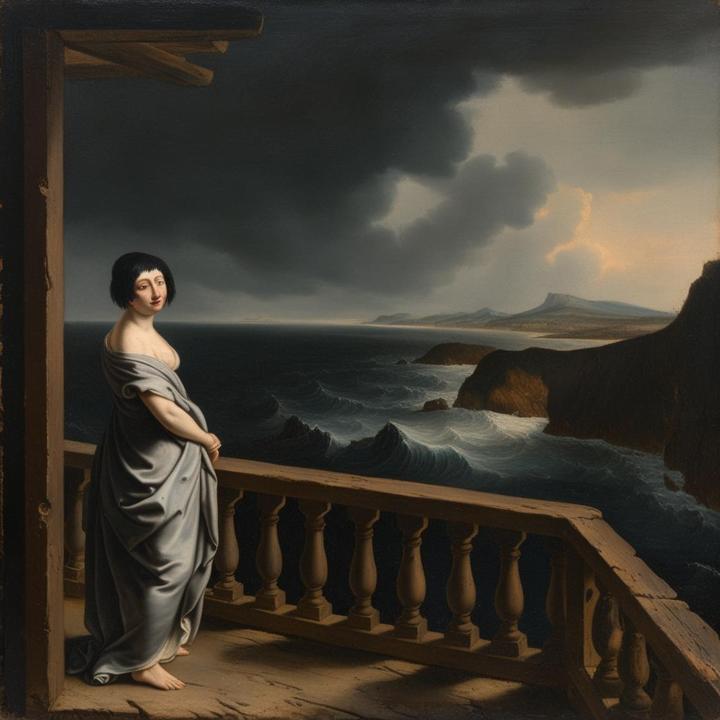
We only have about 650 lines from the woman who basically invented the personal lyric. The rest? Burned by religious zealots, lost to time, reduced to papyrus scraps used to wrap mummies. But here's the thing: those fragments hit harder than most complete poems. They read like someone's diary after a fire, where only the most essential words survived.
Sappho reimagined
Forget the "ancient lesbian poet" label they slapped on her in your Western Civ class. Sappho was the first person to admit that love feels like dying and make it sound like something you'd sign up for anyway.
Fragment 31 isn't poetry. It's a medical report from the emergency room of desire:
"whenever I look at you even briefly,
it is no longer possible for me to speak;
my tongue is broken, a subtle
fire races under my skin,
I see nothing with my eyes,
my ears hum,
sweat pours down me,
trembling seizes me all over..."
Sound familiar? She's describing the exact physical symptoms of a panic attack, drug withdrawal, and seeing your ex with someone new. All at once.
Twenty-six centuries before we had words like "dopamine" or "attachment disorder," Sappho documented how desire hijacks your nervous system. She knew that real love disorders your atoms. Makes you sick. Makes you stupid. Makes you write poetry at 3 AM.
Her fragments are our deleted texts, our torn letters, the poems we burned because seeing them hurt too much. Except hers survived, partially, accidentally, miraculously. Like finding "I can't do this anymore" on a Post-it note stuck to the back of a drawer years later. No context, all impact.
Catullus as chaos
If Sappho invented the love poem, Catullus perfected the toxic relationship cycle. His Lesbia poems read like the diary of every catastrophic situationship you've ever had, just in Latin.
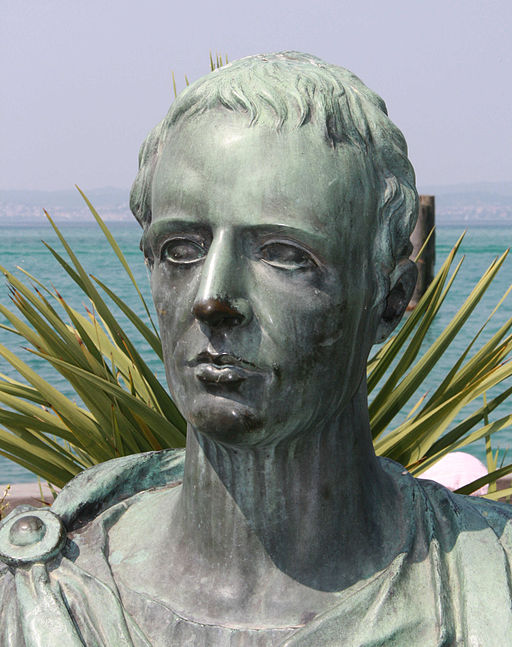
He loves her:
"Let us live, my Lesbia, and let us love,
and value the gossip of stern old men
at exactly one cent."
He hates her:
"I hate and I love. Perhaps you ask why I do this?
I don't know, but I feel it happening and it tortures me."
He's done with her (narrator: he wasn't done):
"Lesbia, let's stop this now. Caesar himself could beg me
to take you back and I'd refuse."
This man understood that the opposite of love isn't hate. It's whatever volatile mixture of both makes you write 116 poems about the same person who's clearly wrong for you.
His Lesbia cycle mirrors my texts from 2012-2014: worship, rage, promises to never speak again, 3 AM weakness, more rage, bargaining with myself about why this time will be different. The only difference? He had the decency to use dactylic hexameter. I just had autocorrect and poor impulse control.
Key insight: The ancients gave us permission to be messy
Here's what they don't teach you in school: classical poetry wasn't noble and elevated. It was raw. These people wrote about orgasms that felt like death, breakups that made them physically sick, desire so intense it scrambled their ability to speak, and love that was obviously destroying them but they couldn't quit.
The ancients wrote with their whole chest about experiences that we share in whispers, if at all. They made art from the mess we're ashamed of. They proved that this isn't modern dysfunction. Humans have always loved badly and documented it beautifully.
Key Poets to Explore
- Sappho (Ancient Greece, 6th century BCE) - Start with Fragment 31. Feel your nervous system recognize itself in 2,600-year-old words.
- Catullus (Ancient Rome, 1st century BCE) - Read the Lesbia poems in order. Watch a man lose his entire mind in real time.
- Ovid (Ancient Rome, 43 BCE-17/18 CE) - Amores for the player's guide, Metamorphoses for how love literally transforms us.
- Sulpicia (Ancient Rome, 1st century BCE) - Rare female Roman voice. Only six poems survive. Every single one's a banger.
- Propertius (Ancient Rome, 1st century BCE) - Made suffering fashionable. Proto-emo kid two thousand years early.
Try This: Write a fragment—something torn, incomplete, true. Take the worst relationship you've ever had. The one that left you breathless in the bad way. Now:
- Write one complete thought about it
- Tear the paper (or delete half the words)
- Keep only what remains
- Don't explain what's missing
- Let the gaps speak
The fragment might look like:
- "...said you'd call when..."
- "...can't wash the sheets because they still..."
- "...remember how you used to..."
What's powerful isn't what you say. It's what got destroyed. Just like those relationships. Just like Sappho's complete works. Just like all the words we waste on people who waste us.
The ancients knew: sometimes the fragment is more honest than the whole. Sometimes what's missing says more than what remains. Sometimes survival looks like incomplete sentences and words that trail off into silence where love used to live.
Medieval Troubadours and Courtly Love
I have a folder on my computer called "Poem Bottles." Messages in bottles thrown into an ocean that will never deliver them. Each file named after someone who'll never read it. Sarah_coffee_shop_2019.doc. M_never_said_goodbye.doc. Anonymous_train_girl_tuesday.doc.
These aren't love poems. They're archaeological evidence of my inability to speak when it mattered. Poetry written after the moment passed, when the crush moved away, when the chance evaporated. I write best about people in retrospect, when it's safe, when they can't respond, when the only risk is to my hard drive storage.
That's why I understand the troubadours.
Courtly love = modern digital yearning:
The troubadours didn't invent unrequited love, but they branded it. Made it noble. Turned "she doesn't want me" into a whole artistic movement. These medieval French poets built careers on wanting women they couldn't have. Usually married noblewomen who outranked them socially and wouldn't risk everything for some dude with a lute.
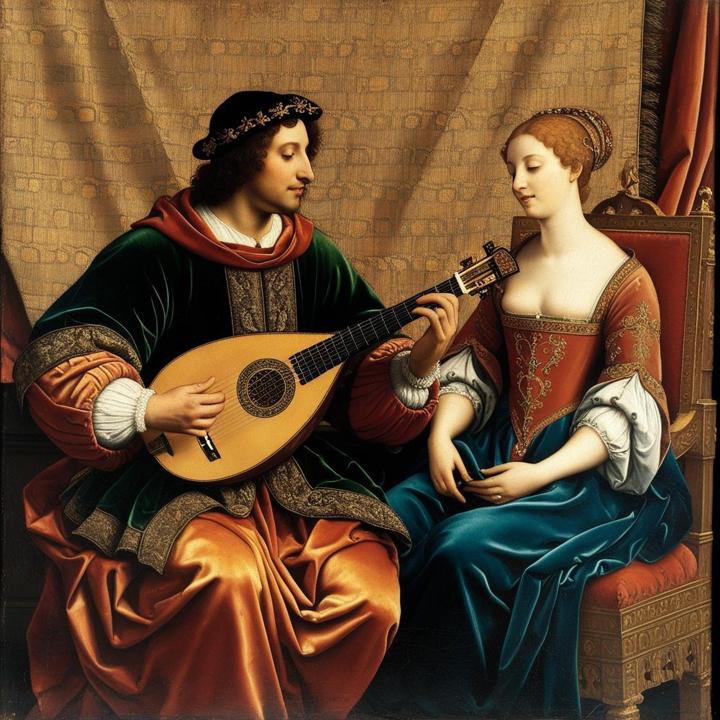
But here's what's brilliant: they connected desire to distance. Made the impossibility essential. If she actually loved you back? Game over. No more material. The longing WAS the point.
This maps perfectly onto our modern loneliness epidemic. We're all writing poetry to people who'll never read it, crafting perfect texts we'll never send, falling for people we only know through screens. The troubadours would recognize every dating app match that goes nowhere, every parasocial relationship with someone who doesn't know you exist.
And it's not just men, despite what the "male loneliness epidemic" headlines suggest. Women are drowning in the same digital isolation, just with different symptoms. We're all troubadours now, performing our yearning for audiences who've already swiped left.
The nobility of suffering became the whole aesthetic. The more impossible your love, the purer it was. They literally created a value system where getting what you want would ruin everything. We do the same thing when we romanticize our pain, when we prefer the tragedy to the mundane reality of actual partnership.
Connection to addiction: Wanting what destroys you, making it holy
The troubadours perfected something I recognize from recovery: making your sickness sacred. They took obsession and dressed it in religious language. Called their unrequited crushes a spiritual practice. Made wanting what you can't have into a path to enlightenment.
I know this move. It's the same logic that says "I need drugs to write," or "I love harder because I'm broken," or "This toxic person is my twin flame." We take our dysfunction and rebrand it as depth.
The troubadours wrote about love-suffering like it purified them. The pain proved the love was real. The impossibility made it matter. Classic addictive thinking: if it doesn't hurt, it doesn't count.
The performance aspect: How pain becomes content
Here's what kills me about the troubadours: they made their living off their L's. These were traveling performers who'd show up at court and sing elaborate songs about how Lady Whoever wouldn't even look at them. The nobles would pay them to perform their rejection. The sadder the song, the better the tips.
This is the 1200s version of trauma posting. Of turning your breakdown into content. Of monetizing your mess.
We judge people for putting their pain on TikTok, but poets have been doing this for 900 years. The troubadours proved that heartbreak could be a career path. They'd travel from castle to castle, basically doing a one-man show about getting curved by some count's wife.
Key Poets to Explore:
- Bernart de Ventadorn (12th century) - Master of making rejection sound religious. Claimed to die daily from love. Drama king.
- Guillaume IX (11th-12th century) - First known troubadour. Duke who invented sad songs. Original "I have everything but feel nothing."
- Beatriz de Dia (12th century) - Rare female troubadour voice. Wrote about wanting unavailable men. Proved women been down bad too.
- Jaufre Rudel (12th century) - Fell in love with a woman he never met based on descriptions. Peak parasocial relationship.
- Arnaut Daniel (12th century) - Made his poems intentionally difficult. "If you don't get it, you don't deserve my pain."
Try This: Write to someone you can't have—make the impossibility the point. Pull up your own "poem bottles" folder. Pick someone you never told, never touched, never had a chance with. Now write them a poem that:
- Names the distance honestly
- Doesn't try to bridge it
- Makes the impossibility beautiful
- Finds meaning in the missing
Start with one of these:
- "To everyone I've loved in silence..."
- "This poem will never find you, which is why..."
- "I practice conversations we'll never have..."
The point isn't to finally confess. It's to transform the ache into art. To join nine centuries of people who made beauty from rejection. To prove that sometimes the poem is all you need.
The troubadours knew: unrequited love is sustainable. Actual relationships end. But yearning? Yearning is forever. Yearning is content. Yearning pays the bills.
Even now, typing this, I'm thinking of adding another file to my poem bottles folder. Some habits die hard. Some don't need to die at all.
The Romantic Era: A Revolution in Poetic Expression
I used to believe I needed chaos to create. Sought out drama when things got too quiet. Sabotaged stability because peace felt like creative death.
The Romantics gave me permission slips to do it. Every time I chose intensity over sanity, I had Byron whispering "The great object of life is sensation—to feel that we exist, even though in pain." Every toxic relationship had Keats co-signing it: "I have been half in love with easeful Death."
It took years of therapy to realize the truth: you don't need to make a mess for beautiful art to exist. The mess will find you. Life provides plenty of material without you setting yourself on fire for inspiration.
The danger of the Romantics: They made intensity seem noble
The Romantic poets turned emotional extremity into a religion. They didn't just feel things—they FELT them in all caps, with orchestral backing, preferably during a thunderstorm. They made normal human emotion seem insufficient. If you weren't dying from feelings, were you even alive?
This is dangerous when you're already prone to extremes.
The Romantics created the myth of the tortured artist. The idea that suffering equals depth, that stability equals creative death. They made dysfunction sexy. Made madness aspirational. Gave every unstable person with a journal permission to mistake their symptoms for genius.
I bought it completely. Used Romantic poetry to justify staying in situations that were killing me. After all, didn't Keats write his best work while dying? Didn't Byron need scandal like oxygen? Didn't Shelley literally heart-attack himself at 29?
The answer is yes. And they're all dead.
Keats and sexual frustration: Connect to modern culture of yearning
Keats wrote some of the horniest poetry in the English language while barely getting any. His letters to Fanny Brawne read like the patron saint of yearning: "I cannot exist without you. I am forgetful of everything but seeing you again—my Life seems to stop there—I see no further."
Sound familiar? It's every playlist titled "songs that make you yearn." Every "I need someone to pine for" tweet. Every person who's turned wanting into a personality trait.
Keats elevated sexual frustration to an art form. Made virginity profound. Turned "she won't fuck me" into "Bright star, would I were stedfast as thou art." He's the reason we think yearning is deeper than having. The original "I want someone who makes me feel like a Victorian woman dying of consumption."
But here's what they don't tell you: Keats was miserable. His letters reveal a man tortured by normal human desire he couldn't fulfill. He didn't choose aesthetic yearning—he was broke, sick, and Fanny's mom hated him. We turned his cope into culture.
Byron's celebrity toxicity: The original problematic fave
Lord Byron was the first celebrity to weaponize his damage. Slept with his half-sister, abandoned multiple children, treated women like disposable poetry props. His response to criticism? Write more poems about how dark and complicated he was.
Byron invented the "I'm trash but I'm honest about it" defense. The "at least I admit I'm toxic" personality. He turned being a disaster into a brand.
We still do this. Still mistake honesty about damage for actual growth. Still give passes to people who perform their toxicity with enough charisma. Byron proved you could be terrible as long as you were talented. Could hurt people as long as you wrote pretty words about it.
He died at 36 helping Greece fight for independence, which everyone treats as redemptive. But read his letters. Dude was just bored and suicidal. Even his heroism was selfish. The Romantic era's greatest trick was making selfishness look like depth.
Nature as drug: How Romantics used nature like I used substances
The Romantics discovered you could get high on trees. Wordsworth wandering the Lake District, Coleridge in his lime-tree bower, Shelley with his "Ode to the West Wind"—they were all chasing altered states through landscape.
I recognize the behavior. It's the same pattern as addiction: needing increasingly intense experiences to feel anything. Except instead of upping the dosage, they'd climb higher mountains. Instead of new drugs, new forests.
"I wandered lonely as a cloud" isn't about daffodils. It's about dissociation. About needing to dissolve your ego into something bigger to escape yourself. The Romantics made nature into their dealer. Made getting lost in the woods sound spiritual instead of symptomatic.
Warning label: Why Romantic ideology can kill you
Here's your warning: Romantic poetry can literally kill you if you take it as life advice. These people believed in:
- Dying young as aesthetic choice
- Emotional intensity over stability
- Suffering as path to truth
- Love worth dying for
- Art over everything, including survival
This ideology is poison for anyone with addictive tendencies, mental health struggles, or basic self-destructive impulses. It's creative gasoline on an already burning fire.
The Romantics gave us gorgeous poetry and terrible life advice. They proved you can write transcendent verse while being an absolute disaster. The problem comes when we confuse the two—when we think the disaster caused the transcendence instead of despite it.
Key Poets to Explore:
- Lord Byron (1788-1824) - Beautiful disaster. Read for the poetry, not the life advice.
- John Keats (1795-1821) - Master of sensual yearning. Died at 25 still wanting everything.
- Percy Shelley (1792-1822) - Revolutionary who couldn't revolution himself into stability.
- Mary Shelley (1797-1851) - Created Frankenstein at 18. Outmonster'd all the monster-men around her.
- William Blake (1757-1827) - The only Romantic who knew this was all kind of insane.
Try This: Write about desire without making it pretty
Think of something you want desperately. Someone, something, some feeling. Now write about it:
- Without metaphors that make it noble
- Without comparing it to nature
- Without making yourself the hero
- With all the ugly parts included
- Like desire is a problem, not a blessing
Start with:
- "I want this like an addict wants..."
- "This desire makes me..."
- "The ugly truth about what I'd do for..."
The goal is to strip desire of its Romantic costume. To see it clearly, without Byron's bullshit or Keats' pretty words. To admit that sometimes wanting is just wanting—not spiritual, not profound, just the animal need dressed up in poetry.
The Romantics gave us permission to feel everything. But sometimes the bravest thing is to feel it without making it mean more than it does. To want without worshiping the want. To hurt without making the hurt holy.
That's the real poetry: surviving your feelings without turning them into gods.
Victorian Romanticism: Love in the Age of Propriety
I once saw an old financial services ad that haunts me. Black and white photo: a small child being dropped off at an orphanage, clutching a teddy bear. The tagline? "Without proper life insurance, this is their future."
The subtext hit like a sledgehammer: You're going to die and leave your kids with nothing. You selfish bastard. Buy our product or traumatize your children forever.
I never had to go that dark in my copywriting days, but I toed the line. Wrote landing pages that whispered threats wrapped in promises. "Without this course, you won't scale the business your family is counting on you to build." Translation: Your kids will resent you for staying small. Your spouse will leave. You'll die a failure.
The Victorians did the same thing with desire. They couldn't write "I want to fuck you" so they wrote about flowers trembling with dew. They couldn't say "I masturbate thinking of you" so they wrote about waves crashing on shores. Everything was subtext. Everything was coded.
They turned repression into an art form.

Repression as innovation: How constraints create better art
Here's what nobody tells you about the Victorian era: repression made them creative as hell. When you can't say what you mean, you have to get inventive. When "ankle" is a dirty word, you learn to make furniture legs erotic.
Christina Rossetti couldn't write "I'm horny and conflicted about it" so she wrote "Goblin Market"—a poem about sisters and fruit that's really about female desire eating you alive. The constraints forced her to create images that burn hotter than any direct statement.
It's like writing with a character limit. Or crafting email subject lines that can't use spam trigger words. The limitation becomes liberation. You find new ways to say old things. Make the subtext do the heavy lifting.
Modern poetry could learn from this. We have the freedom to say anything, so we say everything badly. The Victorians had to be clever. Had to trust their readers. Had to build entire emotional architectures from euphemism and implication.
Rossetti's hunger: What happens when you can't say what you want
Christina Rossetti was hungry her whole life. Not for food—for everything she couldn't have. Love, sex, freedom, God's direct line. Her poetry vibrates with suppressed appetite.
In "Goblin Market," sisters get addicted to fairy fruit that's obviously not about fruit:
"She sucked and sucked and sucked the more
Fruits which that unknown orchard bore;
She sucked until her lips were sore"
This is a woman who knew about wanting things that would destroy you. Who understood that sometimes desire itself is the poison. But she couldn't say that directly. Had to dress it in fairy tale drag. Had to make the hunger mythical because the real hunger was unspeakable.
The repression created pressure. And pressure creates diamonds. Or in Rossetti's case, poems that still make readers uncomfortable 150 years later because we recognize the hunger. We know what the fruit really is. We've tasted it too.
How we hide meaning in public
We think we're past Victorian repression but we're not. We just code differently. Instead of flower language, we have:
- Spotify playlists titled "For You" sent at 2 AM
- Instagram stories with songs that say what we can't
- Subtweets that everyone knows are about that one person
- Emoji combinations that carry whole conversations
- "Accidentally" watching their story first every time
The Victorians had calling cards and coded flowers. We have read receipts and reaction emojis. Same game, different tools. Still saying everything by saying nothing.
The difference? Victorians knew they were being indirect. We pretend we're being honest while hiding behind seven layers of digital subtext. At least when a Victorian woman dropped her handkerchief, everyone knew what it meant. When we post "I'm fine" with a specific song, we expect people to decode our depression through Spotify.
The erotics of absence: Sometimes what you don't say hits harder
The Victorians discovered something porn forgot: imagination is the best aphrodisiac. When you can't show everything, the mind fills in gaps with personal kinks. When you can't say everything, the unsaid becomes electric.
Think about the hottest text you ever received. Bet it wasn't explicit. Bet it was something like "thinking of you" at exactly the right moment. Or just "..." when you both knew what those dots meant.
Victorian poetry is all negative space. It's the gasp between stanzas. The line break that makes you hold your breath. The word they don't say that echoes louder than what they do.
Modern poetry's explicitness can be powerful. But sometimes "I want to devour you" hits softer than Tennyson's "Now sleeps the crimson petal, now the white." Because the first tells you what to feel. The second makes you feel it yourself.
Key Poets to Explore:
- Christina Rossetti (1830-1894) - Repressed desire personified. Made hunger holy.
- Alfred, Lord Tennyson (1809-1892) - Master of making landscape erotic without being obvious.
- Elizabeth Barrett Browning (1806-1861) - Counted the ways while keeping it respectable.
- Robert Browning (1812-1889) - Perfected the dramatic monologue (letting characters say what he couldn't).
- Emily Dickinson (1830-1886) - American but Victorian in spirit. Made dashes do unspeakable things.
Try This: Write a love poem that never uses the word "love"
Write about someone you desire, but:
- Never use: love, want, need, desire, kiss, touch, sex
- Use only concrete images (objects, actions, settings)
- Let subtext carry the emotion
- Make absence present
- Trust the reader to feel what you don't say
Start with:
- "When you [everyday action], I notice..."
- "The distance between your hand and mine..."
- "In the morning, your coffee cup..."
The goal isn't to be coy. It's to make the reader's mind do the work. To create space for their imagination to meet yours. To prove that sometimes the most direct path to feeling is through indirection.
The Victorians knew: repression creates pressure. Pressure creates art. And sometimes the best love poems are the ones that make love unspeakable.
Not because it's shameful. But because it's bigger than words.
Modernist Interpretations of Romantic Poetry
She left on a Tuesday. By Thursday, I was reading "The Waste Land" on my bathroom floor, trying to make sense of lines like "These fragments I have shored against my ruins."
The poem felt like my brain—shattered pieces that might have meant something once but now just cut. "A heap of broken images" was exactly right. That's what remained of our relationship. Disconnected memories that didn't add up to a story anymore. Just shards.
I'd try to explain what happened to friends, but it came out like Eliot's poem—jumbled, referencing things they didn't understand, switching languages mid-sentence. "She said... but then... remember that April... never mind, you had to be there... actually, even being there didn't help."
Modernist poetry isn't difficult because poets were showing off. It's difficult because that's what it feels like when your world breaks. Grammar becomes optional. Linear narrative? Impossible. You're left with fragments, and fragments are all you can offer.
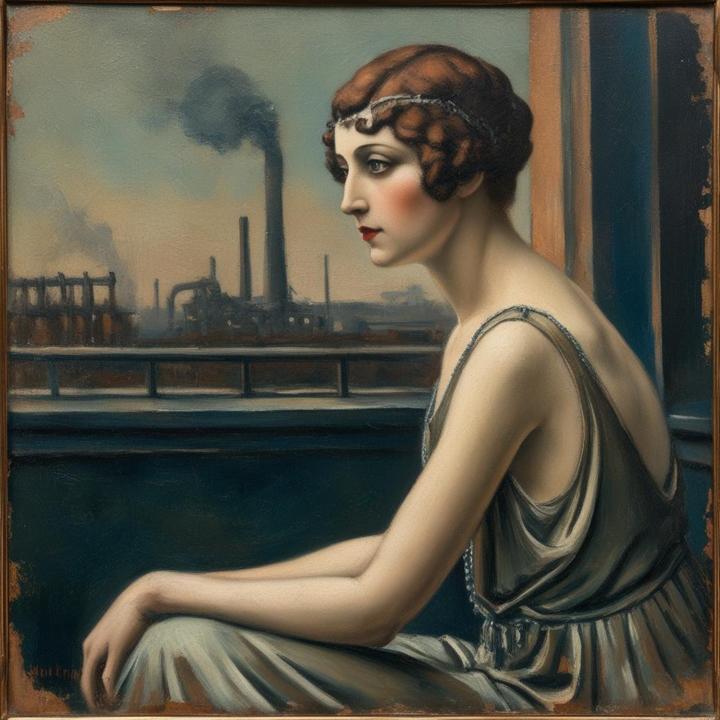
Post-war poetry = post-trauma love: How to love when you're broken
The Modernists wrote after World War I, when the world had seen mechanized death at a scale that broke brains. They came back to love poetry like "How do we write about roses when we've seen what bodies can become?"
This is exactly how you feel trying to love after trauma. After addiction. After betrayal. The old words feel like lies. "Forever" is a joke when you've seen how quickly things end. "Soul mate" sounds insane when you've watched souls get deleted.
The Modernists didn't abandon love poetry. They broke it into pieces that matched their broken experience. They wrote love poems that included death, that jumped between memories without warning, that refused to make sense because sense was a luxury they couldn't afford.
H.D. wrote about her bisexuality and broken marriage in fragments of Greek mythology. Pound wrote his Cantos like a scattered mind trying to hold onto beauty. They all understood: sometimes broken is the only honest form.
Eliot's fragments: When you can't make coherent sentences about feeling
"April is the cruellest month" because spring promises rebirth when you're still dead inside. Eliot got it. Sometimes you can't write linear love poetry because love isn't linear after trauma. It's:
"Your hair wet from the shower"
(flash to another shower, another time)
"The specific blue of that Tuesday"
(but which Tuesday? they blur)
"You said you'd stay"
(or did I dream that?)
"I can connect / Nothing with nothing"
Eliot gave us permission to write love poetry that admits confusion. That includes the blank spaces where memory fails. That jumps between languages because sometimes English doesn't have words for this specific pain.
The Modernists understood that after certain breaks, you can't write sonnets anymore. The form assumes too much stability. Instead, you write jazz—improvisational, referential, making new meaning from the standard changes.
Yeats' aging desire: Still wanting what you can't have at 50
While everyone else was fragmenting, Yeats was aging into his horniness. This man wrote "When You Are Old" at 28, imagining the woman who rejected him full of regret. By 50, he was writing about sexual desire with the desperation of someone who knew time was running out.
"The Wild Swans at Coole" isn't about birds. It's about watching young couples and feeling your own chances evaporate. It's Tinder at 50, seeing the same faces cycle through, knowing the game has passed you by but still playing.
Yeats proved you don't outgrow unrequited desire. You just add mortality to the mix. His late poetry vibrates with "I'm running out of time to be rejected by you." It's thirsty and theological at once. Embarrassing and eternal.
He's the patron saint of everyone who thought they'd have it all together by now but still writes poetry about people who don't text back.
The therapy couch influence: When poets discovered they were screwed up
Freud ruined/saved everything. Suddenly poets had vocabulary for their damage. The Modernists were the first generation to write from the analyst's couch, to understand their patterns had names.
This changed love poetry forever. Instead of "I love you," poets started writing "I love you the way my father never..." Instead of simple desire, they examined why they wanted people who hurt them. The unconscious became conscious, and poetry became excavation.
The danger? Sometimes understanding your patterns doesn't change them. Sometimes it just makes you more articulate about your dysfunction. The Modernists could explain their trauma in stunning detail while still recreating it in every relationship.
Key Poets to Explore:
- T.S. Eliot (1888-1965) - Made fragmentation a form. Turned confusion into art.
- H.D. (Hilda Doolittle) (1886-1961) - Bisexual imagist who wrote desire in mythological code.
- Ezra Pound (1885-1972) - Problematic genius who broke poetry to remake it.
- William Butler Yeats (1865-1939) - Aged like fine wine if wine got increasingly horny.
- William Carlos Williams (1883-1963) - Found love in refrigerator plums and wheelbarrows.
Try This: Write about love using only broken pieces
Take a relationship that ended badly. Now write about it:
- Using only fragments (no complete sentences)
- Jump between at least three different times
- Include one image that doesn't "belong"
- Reference something the reader can't understand
- Don't explain anything
Format like:
"Morning coffee—
(but which morning?)
Your hand on the cup
Baghdad, 2003 (why this memory now?)
'I never said forever'
The yellow—
[leave blank space]
—still can't—"
The goal isn't to be cryptic. It's to be honest about how memory works after trauma. How love exists in pieces after it breaks. How sometimes the truest poem is the one that admits it doesn't know what's true anymore.
The Modernists taught us: coherence is a privilege. Sometimes the most honest love poem is the one that refuses to make sense of senseless loss.
Contemporary Romantic Poetry: New Voices, Enduring Themes
I mocked Instagram poetry for years. Called it "caption culture." Made fun of the bite-sized emotions, the sunset backgrounds, the commodified vulnerability. Then I visited my grandmother in the hospital and she showed me a Rupi Kaur poem she'd screenshot.
It was four lines about healing not being linear. Basic. Simple. True.
That's when I got it. Instagram poetry didn't ruin anything. It made poetry democratic. Yeah, most of it sucks. So does most of everything. But for the first time in history, poetry wasn't locked in universities or dusty bookstores. It lived where people live: on their phones, in their feeds, between selfies and political rants.
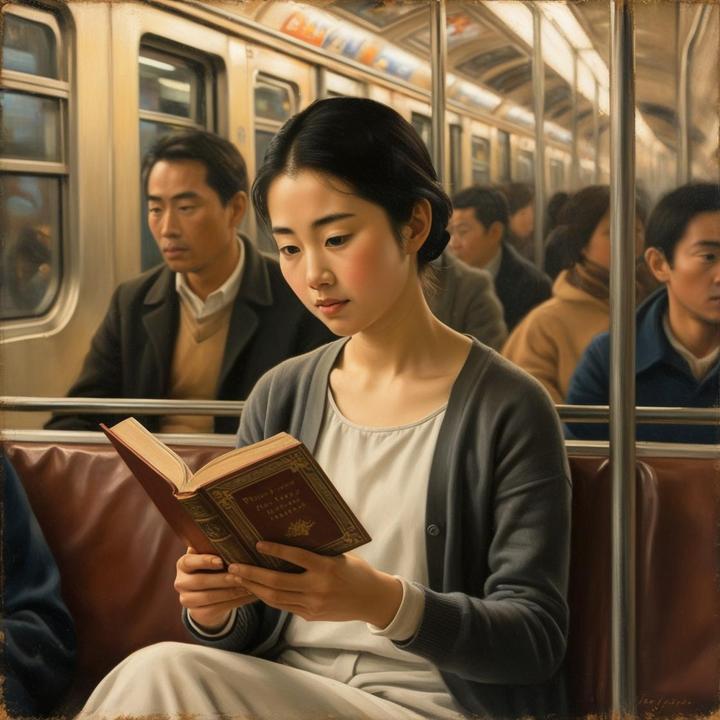
Plath to Kaur pipeline: From complex trauma to simple captions
The journey from Sylvia Plath to Rupi Kaur looks like decline if you're a snob. Plath wrote "I eat men like air" and Kaur writes "you are your own soulmate." One is complex protein, the other is a protein bar. But sometimes you need a protein bar.
Plath required excavation. Multiple readings. Context. A dictionary. Kaur requires thirty seconds and functional literacy. Both have their place. The mistake is thinking accessibility equals laziness. Sometimes the simplest truth is the hardest to write.
But here's the real pipeline: Plath made confessional poetry acceptable. She bled on the page so publicly that it opened doors. Anne Sexton walked through those doors. Then Sharon Olds. Then eventually someone realized you could distill that confession into phone-screen-sized portions and reach millions instead of thousands.
The evolution isn't degradation, it's adaptation. Poetry evolved to survive in the attention economy. Whether that's good or bad depends on whether you think poetry should be preserved in amber or allowed to mutate.
The democracy problem: Everyone's a poet, most suck, that's okay
Instagram turned everyone into a poet the way cameras turned everyone into photographers. Suddenly anyone could arrange words on a square background and call it poetry. The gatekeepers lost their minds.
"That's not real poetry!" they screamed into the void while teenagers got book deals from viral posts.
Here's the truth: most poetry has always sucked. For every Shakespeare, there were hundreds of forgotten hacks. The difference now is we see all the bad poetry. It's not hidden in workshop classrooms or small press magazines nobody reads. It's in your face, getting more likes than your MFA thesis ever will.
This feels like disaster if you're precious about poetry. But it's actually beautiful. Millions of people writing badly about feelings is better than a few people writing brilliantly for each other. Democracy is messy. Poetry should be too.
Why accessibility matters
My grandmother's first language was poverty. Her second was Spanish. English came third. She couldn't parse "Let us go then, you and I, / When the evening is spread out against the sky / Like a patient etherized upon a table."
But she could read "if you were born with / the weakness to fall / you were born with / the strength to rise."
Elitists hate that second poem. Call it a platitude. Call it obvious. But for my grandmother, who survived things Eliot couldn't imagine, that simple reminder of strength was medicine. It met her where she was, in language she could metabolize.
Accessibility isn't dumbing down, it's opening up. It's remembering that poetry's job is to connect, not impress. Sometimes the poem that saves someone is the one they can actually understand.
The new forms: Screenshot poems, text message poetry, TikTok verses
Poetry mutates to survive. New platforms create new forms:
Screenshot poetry: Conversations turned into verse. The gaps between messages become line breaks. Read receipts become punctuation. We're writing poetry in real time without realizing it.
Text message poetry: The haiku of the digital age. Character limits forcing precision. Auto-correct creating accidental surrealism. The medium influencing the message.
TikTok verses: Poetry performed in 60 seconds or less. The return of oral tradition but with ring lights. Memorability matters again. Sound matters. The body reading the poem matters.
Stories as stanzas: Instagram stories that build meaning through sequence. Each slide a line break. The 24-hour expiration date adding urgency. Ephemeral poetry for ephemeral times.
These aren't inferior forms; they're evolved forms. They meet people where they are: on their phones, between tasks, seeking connection in micro-doses.
Where we're headed: AI, VR, but still the same need
AI can write sonnets now. Soon VR will let us walk through poems (actually I don't think anybody cares much about VR anymore). Technology will keep mutating the medium. But the core remains: humans need to express what it feels like to be human. We need to see our experience reflected back. We need to feel less alone.
The future of love poetry might be:
- AI collaborations that help us say what we can't
- VR experiences that make poems three-dimensional
- Blockchain poetry that proves authenticity in an age of deep fakes
- Neural implant poetry that transmits feeling directly
But it'll still be about the same ancient need: "Do you feel this too?"
Key Contemporary Voices:
Confessional Pioneers:
- Sylvia Plath: Made mental illness speakable
- Anne Sexton: Made female desire explicit
- Sharon Olds: Made the body a valid subject
Instagram Era:
- Rupi Kaur: Proved accessibility could be revolutionary
- Atticus: Showed anonymity still has power
- Nayyirah Waheed: Minimalism as politics
Digital Innovators:
- Richard Siken: Tumblr's poet laureate
- Patricia Lockwood: Twitter surrealism master
- Chen Chen: Making queerness joyful and shareable
Try This: Write a poem that works in under 3 seconds
The average Instagram user spends 3 seconds per post. Write a love poem that:
- Delivers impact in first line
- Completes a thought in 20 words or less
- Uses line breaks for phone screens
- Works without context
- Feels complete but leaves you wanting more
Format for phone:
first line hits—
second line
turns
last line
transforms
Example:
I delete your name
from my phone
but not
from my
autocorrect
The goal isn't to be shallow. It's to be precise. To distill feeling to its essence. To prove that brevity isn't the enemy of depth.
Contemporary poetry accepts that attention is currency and spends it wisely. Three seconds to make someone feel less alone. That's not selling out—that's evolution.
The Future of Romantic Poetry
Romantic poetry won't die as long as humans continue falling into and out of love. While social media has transformed how we share and consume romantic verse—with Instagram poets like Rupi Kaur accumulating followers by the millions—our hunger for language that captures love's complexity remains insatiable.
New technologies create new vessels for ancient feelings. Today's poets experiment with multimedia presentations, interactive digital platforms, and collaborative projects that push romantic expression beyond the page. Yet the fundamental challenge remains unchanged: how to transform the chaos of feeling into language precise enough to make a stranger's heart race.
As Lord Byron wrote, "Love will find a way through paths where wolves fear to prey." No matter how our cultural landscape shifts, romantic poetry will continue excavating the heart's hidden chambers, illuminating what we feel but cannot name.
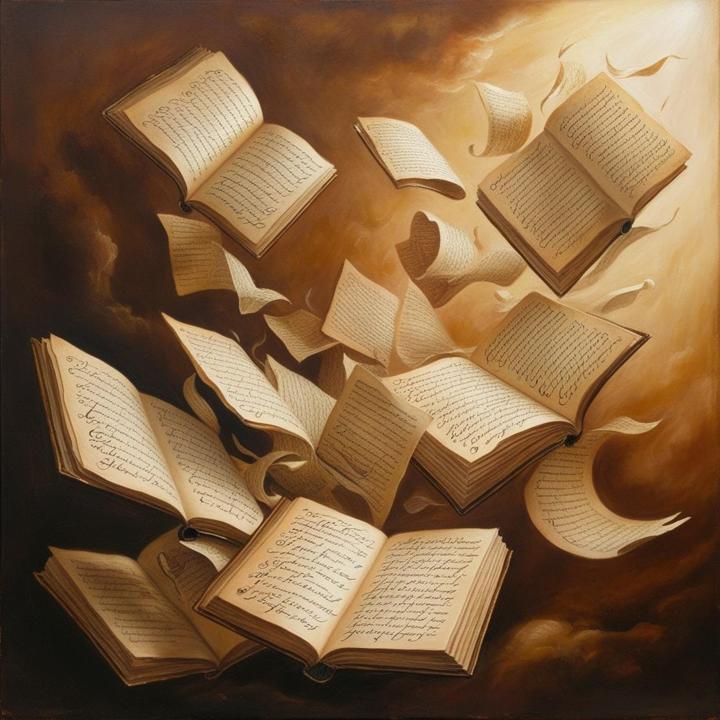
Conclusion: "The Only Lesson That Matters"
Remember where we started? "Even after they get hit, some people will stay."
I wrote that thinking about all the ways I let myself be diminished in the name of love. The emotional neglect I called devotion. The crumbs I called feast. The hits I didn't even recognize as violence because they came wrapped in need.
But here's what tracing love poetry through the centuries taught me: we've always been documenting this exact damage. From Sappho literally losing her words mid-sentence from desire to Kaur's Instagram squares about self-love, we've been writing the same poem for 2,600 years: "Love wrecks us and we keep coming back."
The forms change. The technology evolves. But the core remains: we write love poetry not because love is beautiful, but because it's survivable. Barely. And the barely is what makes the poetry.
The through-line: Every era found new ways to say "I'm dying without you"
Look at what we've traced:
- Classical poets made fragments from their breaking
- Medieval troubadours made nobility from their rejection
- Romantics made religion from their intensity
- Victorians made art from their repression
- Modernists made meaning from their confusion
- Contemporary poets make connection from their confession
Every era took the same wound—"I need you more than you need me"—and dressed it in period costume. But underneath the fashion, it's the same raw need. The same imbalance. The same documentation of surviving love's casual cruelties.
We keep writing because we keep loving badly. Keep choosing people who can't choose us back. Keep breaking ourselves against the same walls our ancestors broke against. The only difference is now we have more words for the breaking.
The real evolution: Not forms but honesty
The real change across centuries isn't how we write love poems but how honest we're allowed to be in them. Sappho could only give us fragments. The troubadours had to worship from distance. Victorians coded everything.
Now? We can say exactly what happened. Name the neglect. Document the damage. Post the screenshots. Share the receipts.
But more honesty doesn't mean better poetry. Sometimes the fragment says more than the full disclosure. Sometimes the code carries more charge than the confession. The question isn't how much truth can you tell, but how do you make the truth art?
Every era gave us new permissions:
- Permission to want (Classical)
- Permission to yearn (Medieval)
- Permission to overflow (Romantic)
- Permission to repress (Victorian)
- Permission to fragment (Modern)
- Permission to confess (Contemporary)
The next era? Maybe permission to heal. But we're not there yet.
Final challenge: Write your truth in whatever form fits
Here's your assignment, and it's the only one that matters:
Write the love poem only you can write. The one that documents your specific damage in your specific voice. Don't worry about tradition or innovation. Don't worry about whether it's Instagram-ready or academic-approved.
Write the poem that tells the truth about how you've loved and been loved. How you've failed at it. How you've survived it. How you're still here despite it.
Use whatever form fits:
- Fragment if you're broken
- Sonnet if you need structure
- Screenshot if that's your language
- Voice note if writing hurts
- Whatever carries your particular truth
The form doesn't matter. The confession doesn't matter. The craft doesn't matter.
What matters is that you write it. That you add your voice to the 2,600-year conversation about how fucking hard it is to love and be loved. That you prove survival is possible by documenting it.
Last line: Now pick up your phone. Open your notes app. Start typing.
Because somewhere, someone needs to read exactly what you're afraid to write. Someone else is accepting hits in the name of love and thinking they're the only one. Someone else is writing poems at 3 AM to someone who'll never read them and wondering if they're crazy.
They're not crazy. You're not crazy. We're all just trying to make sense of the senseless. To find words for the wordless. To survive love long enough to write about it.
Every era of poets has bled on the page for you to know: you're not alone in this. Love has always been disaster and we've always made art from the wreckage.
Your turn.
Now go write like your survival depends on it.
Someone else's might.
This is the first essay in a series of three.
To read the next one, The Evolution of Romantic Poetry PART TWO: A Cross-Cultural Exploration, click here.
